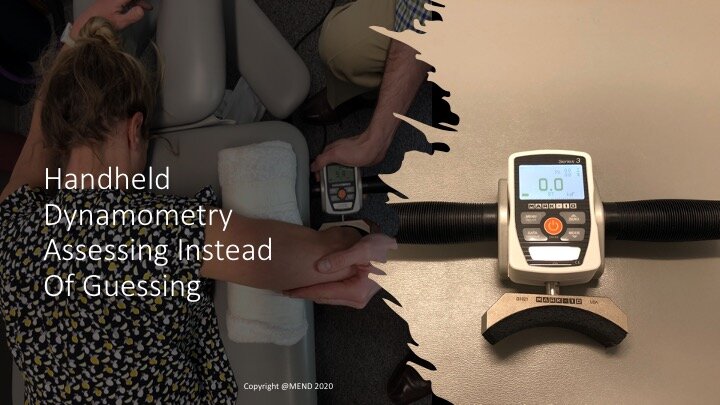In our Boulder Physical Therapy practice we routinely assess a patient’s strength, in part, to determine a muscle’s force capacity and in turn its’ requirements for strength training exercises. In most Physical Therapy educational programs students are instructed to grade a patient’s force capacity using a combination of range of motion measurements and the forces applied by the patient’s body part into the student’s hand. This type of testing, manual muscle testing, is most reliable and best utilized in weaker patient populations (< 3/5 strength). Conversely, the majority of patients seen in outpatient Physical Therapy clinics can produce greater amounts of force and these forces would be judged subjectively by the provider and differ significantly depending on who is providing the test.
A recent study highlights the inability of an operator’s hands to detect muscle weakness. Nagatomi and colleagues compared the accuracy of manual muscle testing against a hand held dynamometer (Knee Surg Sports Traumatol Arthrosc. 2017). Authors tested 53 patients with either a rotator cuff or shoulder labrum tear (Bankart or SLAP) using both a manual muscle test and hand held dynamometer. They reported clinicians were most accurate when the side to side strength difference was <60% compared to the uninvolved shoulder, but their accuracy fell with a < 40% difference. Authors concluded differences could be detected less consistently if a patient’s strength was <75-85% of their uninvolved strength, but less significant side to side differences could not be detected with hands alone.
This lack of reliability and validity requires the use of a hand held force gauge (in picture above), dynamometer, to more objectively measure the force capacity of the muscle. This allows our practice to gain a better understanding of a muscle’s capacity, as well as, its’ improvement over time as the strength training program is performed by the patient.
Click here to schedule your next assessment with the experts at MEND

